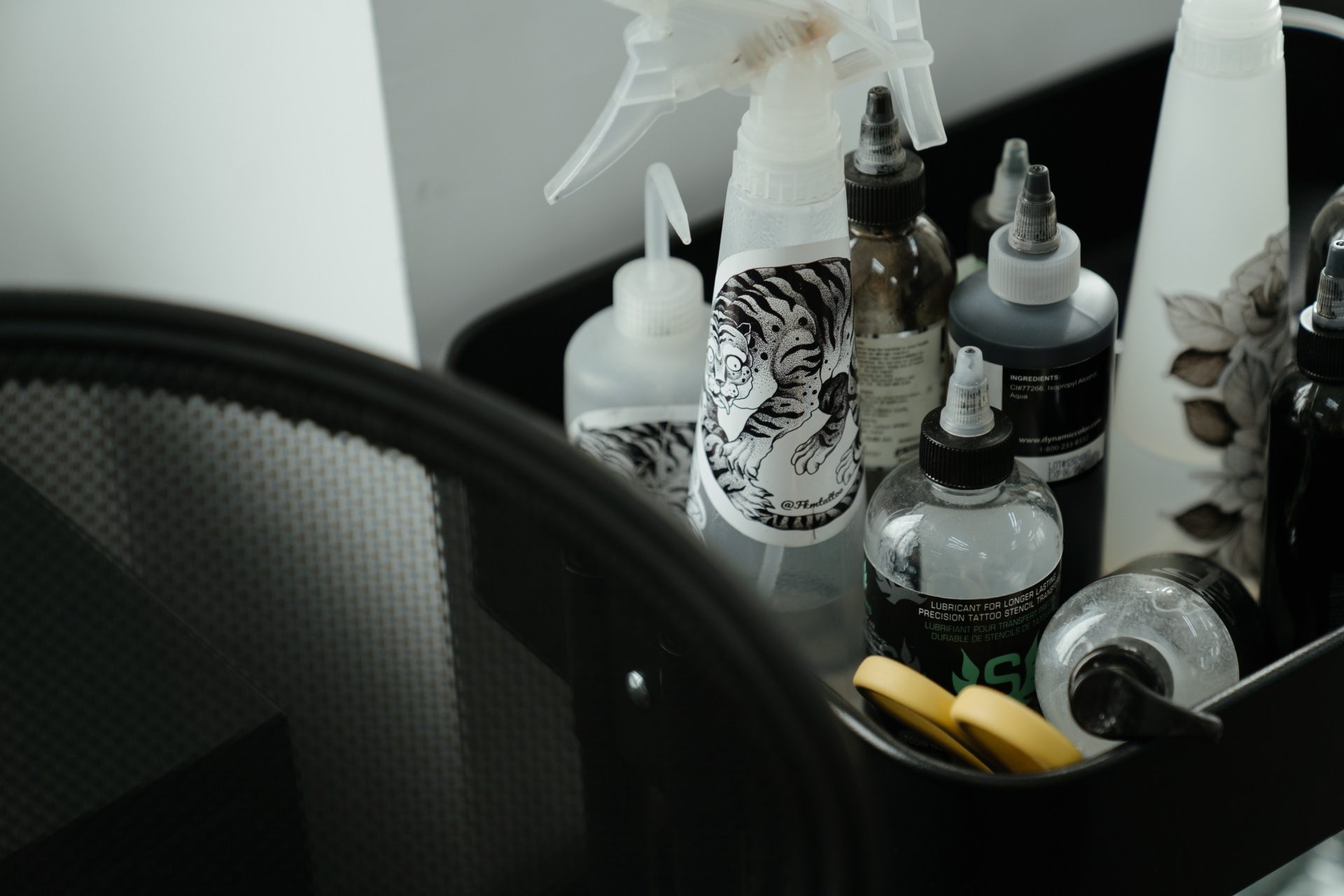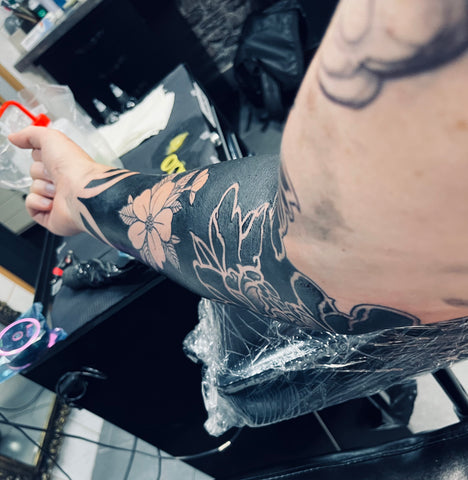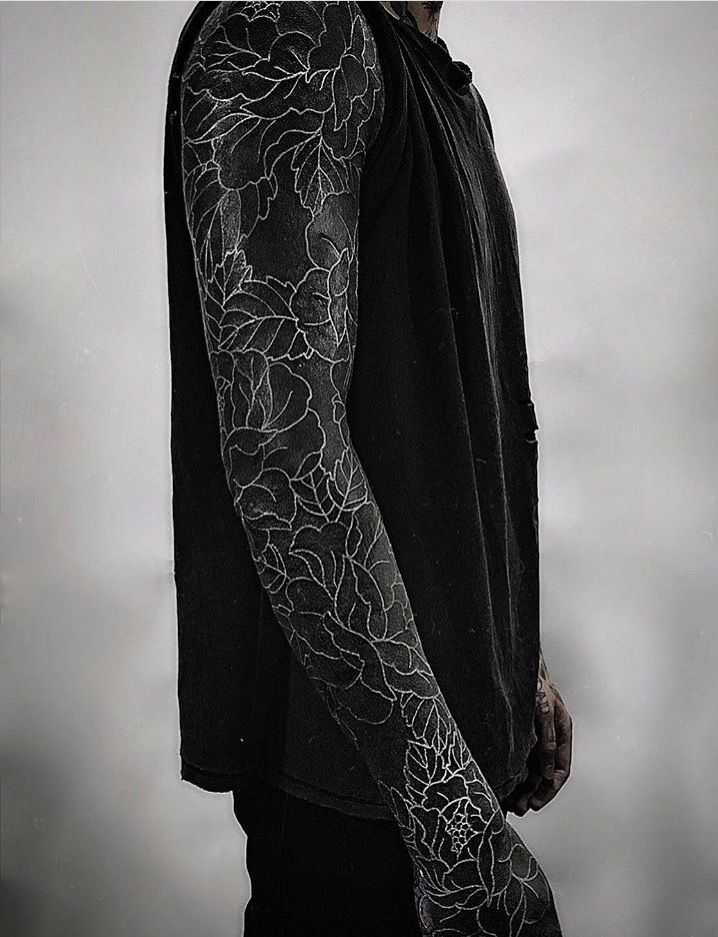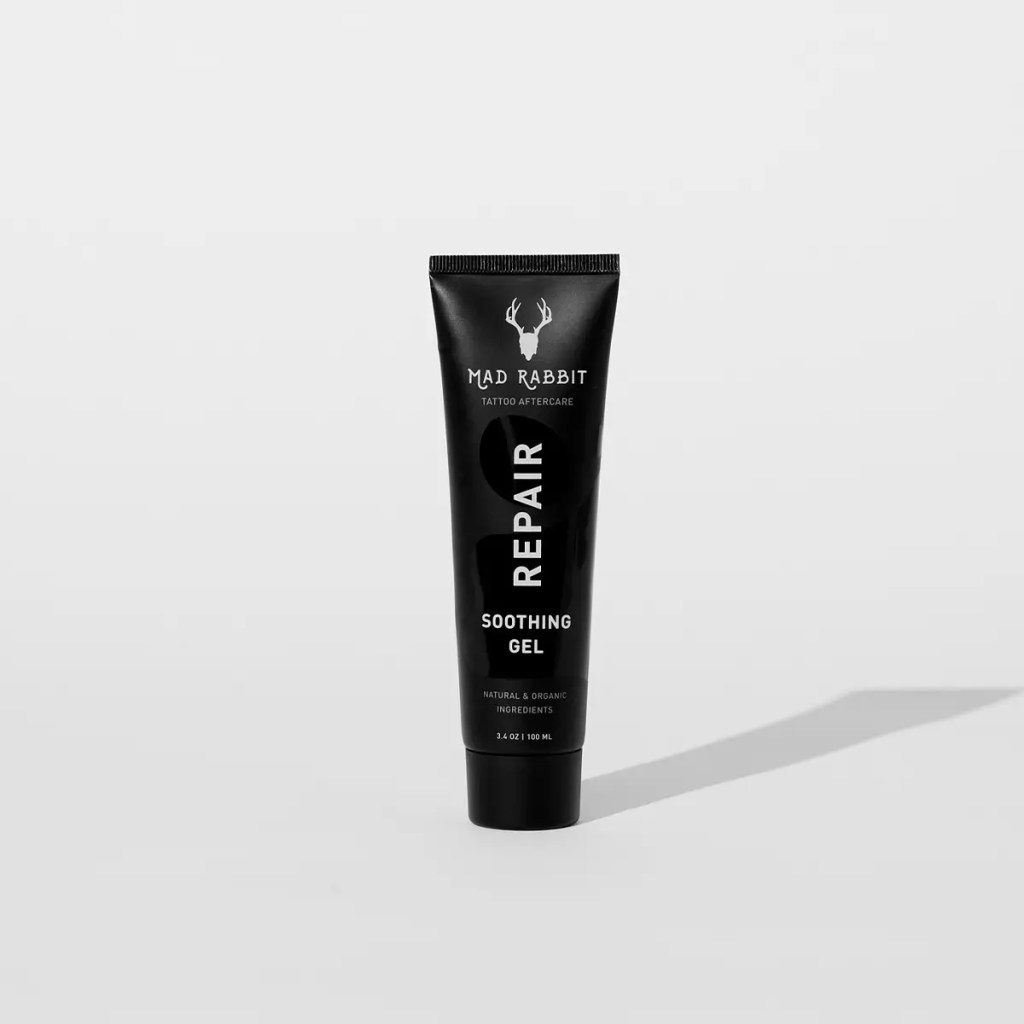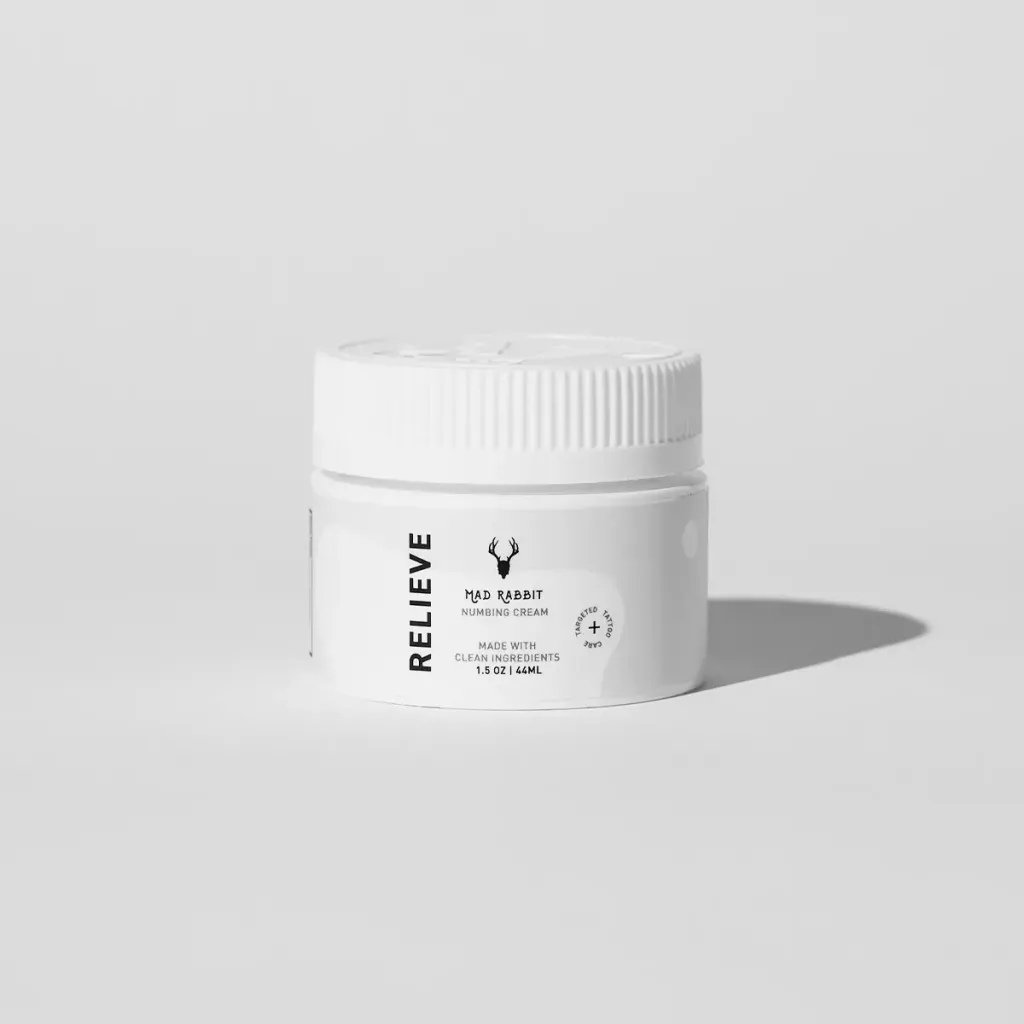In the realm of body modifications, getting inked holds a special place. It’s a unique form of self-expression, a way to immortalize a memory or a tribute to someone or something significant.
However, the process of tattooing involves introducing foreign substances into the body and sometimes, our bodies react in unexpected ways. One such unexpected reaction is an allergy to tattoo ink, a phenomenon garnering increasing attention in recent years.
Understanding tattoo ink allergies, their symptoms, causes and prevention methods can help you make an informed decision before you decide to get a tattoo. Or if you are experiencing an unusual reaction post-tattoo, knowing the signs and symptoms will hopefully prompt you to seek medical guidance from your physician.
What to know about allergies before getting a tattoo
The Prevalence And Possibility Of Allergic Reactions To Tattoo Ink
Though uncommon, allergic reactions to tattoo ink do occur. The phenomenon is not restricted to a certain demographic or to tattoo enthusiasts; it can affect anyone deciding to get a tattoo. It’s estimated that a small percentage of people having tattoos do experience allergic reactions.
However, these reactions can range from mild and easily manageable to severe and requiring medical attention. Therefore, being aware of this possibility and the associated risks is crucial before going under the needle.
Ink Allergies: Risks Of Getting a Tattoo
Tattooing involves puncturing the skin with needles and injecting ink into the dermis, the second layer of skin. And the ink injected into the dermis during a tattoo, becomes a permanent fixture in your body.
Yet, the ink used in tattoos contains a variety of chemicals and ingredients, and your body may react to these foreign substances. The reaction can be immediate or it may take weeks, months or even years to manifest.
The risks of getting a tattoo include:
- Acute inflammatory allergic reaction: In this case, the skin becomes red, swollen and irritated at the site of the tattoo. This is usually due to the irritation caused by the tattoo needle and the ink. And it usually subsides within a few weeks.
- Photosensitivity: Tattoos that are exposed to sunlight may result in an allergic reaction, especially those containing yellow ink. This can lead to increased sensitivity to UV rays.
- Dermatitis: Certain tattoo inks can cause dermatitis, a skin condition that results in itchy, red and inflamed skin.
- Lichenoid allergic reaction: This is a rare reaction often related to red tattoo ink and is characterized by small, itchy bumps that appear around the tattooed area.
- Pseudolymphomatous allergic reaction: This is a delayed reaction that does not occur immediately after getting the tattoo. It is often related to red, blue or green tattoo ink.
- Granulomas: These are small bumps that can appear as a result of an allergic reaction, commonly caused by red tattoo ink.
Types Of Allergies From Tattoo Inks
The specific type of allergy you might experience depends largely on the color of the ink used. Different colors use different pigments, which can cause different reactions. Some of the most common tattoo ink allergies are associated with the following colors:
- Red Ink: Allergies related to red ink are the most common. They are often due to ingredients like ferric oxide, mercury sulfide and ferric hydrate. Some red inks may also contain iodine and cadmium, which are common allergens.
- Yellow Ink: Yellow ink, which often contains cadmium sulfide, can cause increased photosensitivity, making your tattoo more sensitive to sunlight.
- Blue Ink: Blue tattoo ink, often made from minerals like azurite and cobalt, can also cause allergic reactions.
- Black Ink: Despite being the most commonly used color, black ink can cause allergic reactions due to its ingredients like iron oxide and carbon.
- Green, White and Purple Inks: While less common, these colors can still cause allergic reactions due to their specific ingredients.
Ink Allergies: Precautions Before Tattooing
Before getting a tattoo, it’s essential to discuss potential allergic reactions with your tattoo artist. They can provide you with a list of ingredients in each ink color, which you can then discuss with a dermatologist to identify potential allergens.
Some tattoo artists also offer to do a test spot or a patch test to check for potential allergic reactions. This involves injecting a small amount of ink into the skin and observing the area for any signs of a reaction. Which is yet another reason to choose a reputable tattoo artist and shop.
When you choose a professional artist and a quality shop, you’re gaining access not only to the tattooists skill as an artist, but to their industry experience and training. Quality artists use high quality inks and tattoo supplies.
Good artists are properly trained and know that the inks they use have materials safety data sheets, that accurately list all of the included ingredients. A good tattoo artist or shop can provide you with this information, so you can discuss any potential side effects with your dermitologist and make an informed choice.
How To Deal With Tattoo Ink Allergies
If you experience the symptoms of a tattoo ink allergy, the first step is to seek immediate medical attention. Over-the-counter (OTC) medications like antihistamines and topical ointments like hydrocortisone can help alleviate mild symptoms. For more severe reactions, stronger medication or antibiotics may be necessary.
In some cases, allergic reactions can damage the tattoo. If this happens, your tattoo artist may be able to touch up the tattoo after your skin has healed. If your skin cannot tolerate the ink, laser tattoo removal might be an option.
Symptoms Of Tattoo Ink Allergies
The symptoms of a tattoo ink allergy can be similar to those of normal tattoo healing, making it difficult to distinguish between the two. However, certain signs may indicate an allergic reaction:
- Inflamed or red skin
- Itchiness
- Flaking or scaling skin
- The development of small pustules or blisters
- A localized skin rash
- Increased sensitivity to sunlight
Keep in mind that these symptoms might occur immediately after getting the tattoo. But they can also appear after a significant delay of weeks, months or years.
Preventing Allergic Reactions to Tattoos
The best way to prevent an allergic reaction to tattoo ink is to be aware of the risks and take precautions before getting tattooed. This includes discussing potential allergies with your tattoo artist and a dermatologist, getting a patch test done and choosing a reputable tattoo studio that uses high-quality, regulated inks.
Quality Tattoo Artists And Studios Use Regulated Inks
The importance of always choosing quality artists working in reputable shops can’t be overstated. Professional tattooists have undergone multi-year apprenticeships and are certified to work in their field.
Qualified tattoists have the training, knowledge and experience necessary to provide clients with accurate information about the tattoo process and it’s associated risks. And unlike ‘scratchers‘, they understand the importance of using quality inks and adhering to proper safety and sterilization protocols.
What To Know About Tattoo Ink Allergies
Understanding tattoo ink allergies is essential for anyone considering getting a tattoo. While uncommon, these allergies can cause discomfort and potentially ruin your tattoo. By being aware of the risks, potential symptoms and preventative measures, you can ensure a safer and more comfortable tattooing experience.
While getting tattooed can be an exciting form of self-expression, it’s crucial to remember that your health and safety should always come first. Being informed about the potential risks, including tattoo ink allergies, can help you make an educated decision and ensure that your tattoo experience is as safe and enjoyable as possible.
Article Sources – Recommended Further Reading
Vagabond takes every opportunity to use high-quality sources, including peer-reviewed studies, to support the facts within our articles. Read our editorial guidelines to learn more about how we keep our content accurate, reliable and trustworthy.
